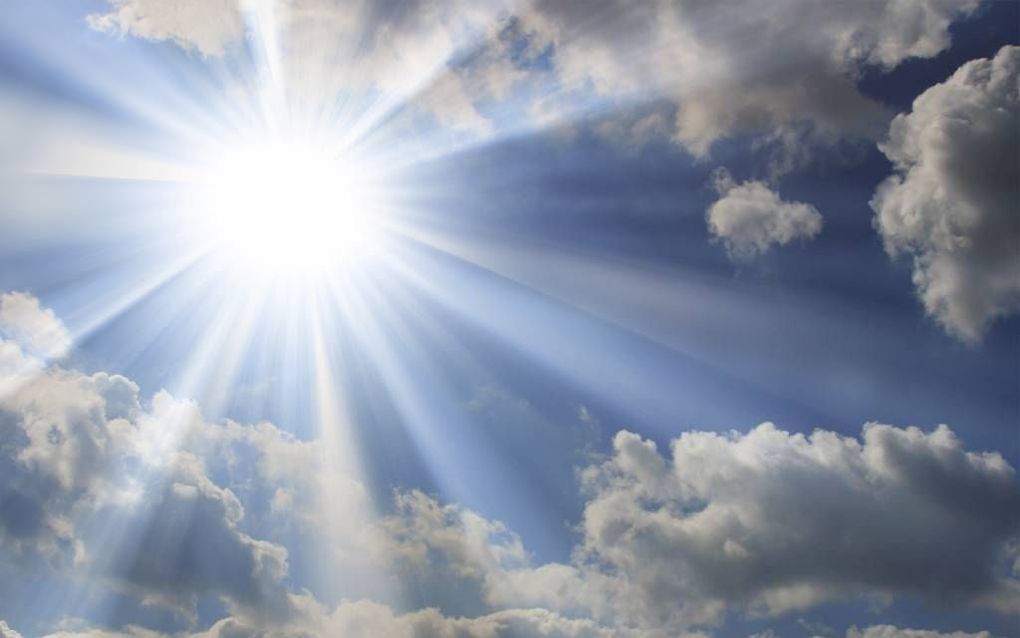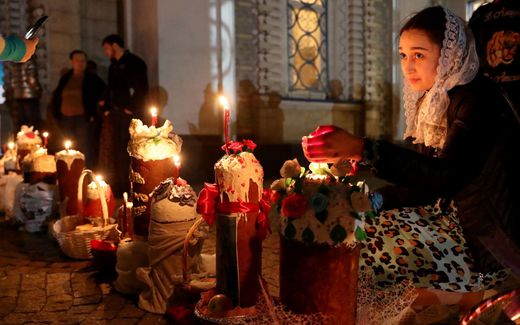Ascension Day is not a holiday throughout Europe
26-05-2022
European Union
Wim Hulsman & Bastiaan van Soest, RD

Photo iStock
European Union
Thursday is Ascension Day and over little more than a week, the first and second day of Pentecost will be celebrated. In some countries, these days are fixed holidays. But what about elsewhere in Europe?
What do Christians commemorate on these holidays?
On Ascension Day, Christians commemorate the ascension of Christ, as described in, among other books, Acts 1:4-14. At Pentecost, Christians commemorate the outpouring of the Holy Spirit into Jerusalem, as described in Acts 2, and the working of the Spirit then and thereafter among the Gentiles.
What does Ascension Day have to do with Pentecost?
Ascension Day is always ten days before Pentecost. That fact has old papers; already in Leviticus 23, it can be read that the Feast of Weeks is observed fifty days after Passover. During the Feast of Weeks after Jesus’ ascension, the Holy Spirit was poured out. The Feast of Weeks is then called Pentecost, after the Greek word for fifty, “pentakosta”.
How is the date of Ascension determined?
A long time ago, the Western Church decided that Easter would fall on the first Sunday after the first full moon in spring. Ascension is forty days after Easter because Acts 1:3 says that the Lord Jesus performed signs and was seen for “forty days.” Pentecost falls, according to Leviticus 23:15-21, fifty days after Easter. The first full moon of spring thus strongly determines the church calendar.
Is Ascension Day celebrated everywhere in Europe on Thursday?
No, it is only an official holiday in most countries surrounding the Netherlands. In addition to residents of the Benelux countries, residents of France, Germany, Austria, Liechtenstein, Denmark, Norway and Iceland, and parts of Switzerland also have a day off.
Do the other countries not pay any attention to the ascension of Christ?
Not with an official hoilday, but in churches, sometimes attention is paid to the Ascension at another time. The Roman Catholics in Italy, for example, do this on the Sunday before Pentecost, next Sunday. This is also the case in Hungary, Poland and Spain.
In Roman Catholic countries such as France, Italy, Austria, Spain, parts of Austria and parts of Switzerland, more attention is paid to the Assumption of Mary. This is celebrated on August 15 as the Assumption of the Virgin Mary. In those countries, this is an official holiday on which many shops are also closed.
And what about the celebration of Pentecost in Europe?
Pentecost is celebrated more in Europe than Ascension Day, according to an inventory (see map). Whit Sunday and Whit Monday are public holidays in almost all countries, where Ascension Day is also a holiday. Whit Monday is an official holiday in Hungary, but Ascension Day is not. There are a number of countries where only Whit Sunday – and not Monday – is a public holiday: Finland, Estonia, Poland and Slovenia. Whit Sunday is also a day with many activities in the United Kingdom, but it is not a public holiday there.

Pentecost is also celebrated in several countries where the Eastern Orthodox churches are prominent. This is the case in Ukraine – under normal circumstances –Romania, Greece and Cyprus. But because the churches in these countries use the Julian calendar, the date of Pentecost differs from that in Western Europe. Pentecost falls a week later in these countries.
So there are more countries that have second holidays?
Yes, in Europe and the Netherlands, that includes Belgium, Luxembourg, France, Germany, Austria, parts of Switzerland, Liechtenstein, Denmark, Norway, and Iceland.
And where do those “second” holidays come from?
The Christian holidays, in general, have old papers. Easter was already celebrated in the Early Church; Pentecost since the third century, Ascension Day since the fourth century.
The Church of the Reformation was reserved about the Christian holidays or even opposed their observance. The holidays were seen as a remnant of the liturgy of the Roman Catholic Church. The reformers actually wanted to return to only Sunday as a Christian holiday.
The main problem was the many typical Roman Catholic holidays such as Candlemas, the Annunciation, Mary’s Nativity, and the many name days of persons venerated as saints from the Bible and church history. In the fifteenth century, in particular, the number of religious holidays increased sharply. The interpretation of those days was often not what the church would have liked: no reflection but more relaxation and entertainment. That was the reason even for the Roman Catholic Church to reduce the number of memorial days.
The reformer Martin Luther wanted to avoid all holidays that did not fall on Sunday. That is more or less what other reformers such as Zwingli, Farel, Viret, and Calvin thought about it. John Knox and his followers in the Church of Scotland went the furthest: they did not adhere to the church year at all and therefore had no Easter Sunday, Christmas, et cetera.
And why is there more and more the call to, for example, abolish Whit Monday?
The secularisation of the Netherlands is going fast. The Dutch ‘have’ less and less with the Christian holidays in general and with an often misunderstood festival such as Pentecost. The bond with, for example, Liberation Day would then be stronger. Those who want to emphasise the diversity of the Netherlands believe that the Sugar Fest as a day off does more justice to the current composition of the Dutch population.
This article was translated by CNE.news and previously published in Dutch daily Reformatorisch Dagblad on May 21st, 2020 and May 26nd, 2022.
Related Articles





